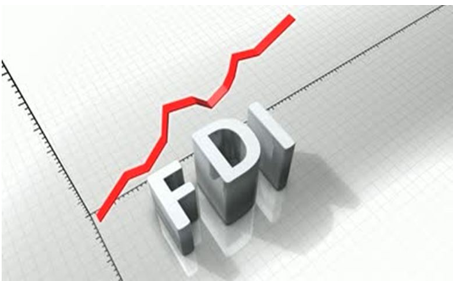i INP-WEALTHPK
Ayesha Saba
Pakistan attracted $1,273 million in FDI during the first five months (July-November) of FY25 — a 42% increase from $894.8 million in the same period last year. This surge, led by substantial contributions from China, reflects renewed investor confidence driven by improved macroeconomic indicators, strategic policy reforms, and growth in key sectors like energy, manufacturing, and technology.

As per the State Bank of Pakistan’s data, during the first five months of FY25, China retained its position as the top investor, contributing $468.9 million in FDI — a substantial 60% rise from $293.2 million recorded in the corresponding period last year. In November 2024, Pakistan secured $154 million in FDI from China out of a total of $382.8 million received from various partner countries.
Talking with WealthPK, Liaquat Ali Shah, Executive Director and Head of Policy Division at the CPEC Centre of Excellence, noted that the primary driver behind the inflow was the increased focus on strengthening trade ties and infrastructure projects under the China-Pakistan Economic Corridor (CPEC).
He elaborated, “China remains the largest contributor to Pakistan’s FDI, as Beijing continues to view Pakistan as a strategic partner in its Belt and Road Initiative. The ongoing expansion of CPEC-related energy and transport projects has created a positive spillover effect, attracting ancillary investments in associated sectors.” The energy sector, attracted significant funding due to Pakistan's commitment to renewable energy and sustainable development goals.
Investment in wind and solar energy projects increased by 35% compared to the previous quarter, reflecting the global shift towards green energy solutions. He maintained that despite a positive trend, the total FDI inflow remained modest relative to the government's efforts to attract substantial foreign investment. The business community cites challenges such as high inflation, bureaucratic hurdles, weak rule of law, corruption, and security concerns as impediments to a more robust investment climate.
However, he emphasized the need for a diversified investment portfolio to achieve sustainable economic growth. While the infrastructure and energy projects are vital, investments in human capital, information and communication technology (ICT), and transport infrastructure are equally important. Enhancing political stability, ensuring consistent and transparent regulatory frameworks, and improving security measures are critical steps toward creating an environment conducive to attracting and retaining foreign investors, he added.
Credit: INP-WealthPk









